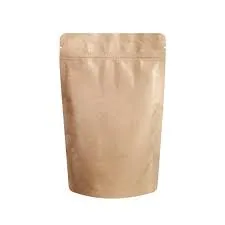- Afrikaans
- Albanian
- Amharic
- Arabic
- Armenian
- Azerbaijani
- Basque
- Belarusian
- Bengali
- Bosnian
- Bulgarian
- Catalan
- Cebuano
- chinese_simplified
- chinese_traditional
- Corsican
- Croatian
- Czech
- Danish
- Dutch
- English
- Esperanto
- Estonian
- Finnish
- French
- Frisian
- Galician
- Georgian
- German
- Greek
- Gujarati
- haitian_creole
- hausa
- hawaiian
- Hebrew
- Hindi
- Miao
- Hungarian
- Icelandic
- igbo
- Indonesian
- irish
- Italian
- Japanese
- Javanese
- Kannada
- kazakh
- Khmer
- Rwandese
- Korean
- Kurdish
- Kyrgyz
- Lao
- Latin
- Latvian
- Lithuanian
- Luxembourgish
- Macedonian
- Malgashi
- Malay
- Malayalam
- Maltese
- Maori
- Marathi
- Mongolian
- Myanmar
- Nepali
- Norwegian
- Norwegian
- Occitan
- Pashto
- Persian
- Polish
- Portuguese
- Punjabi
- Romanian
- Russian
- Samoan
- scottish-gaelic
- Serbian
- Sesotho
- Shona
- Sindhi
- Sinhala
- Slovak
- Slovenian
- Somali
- Spanish
- Sundanese
- Swahili
- Swedish
- Tagalog
- Tajik
- Tamil
- Tatar
- Telugu
- Thai
- Turkish
- Turkmen
- Ukrainian
- Urdu
- Uighur
- Uzbek
- Vietnamese
- Welsh
- Bantu
- Yiddish
- Yoruba
- Zulu
cotton packaging bags
Understanding Cotton Packaging Bags A Sustainable Choice for the Future
In recent years, the conversation around environmental sustainability has intensified, prompting industries to innovate and seek eco-friendly alternatives to traditional packaging materials. Among these, cotton packaging bags have emerged as a popular choice, gaining traction among eco-conscious consumers and businesses alike. This article explores the benefits of cotton packaging bags, their role in sustainability, and why they are a smart choice for the future.
The Rise of Cotton Packaging Bags
As consumers become more aware of plastic pollution and its detrimental effects on the environment, many are turning to biodegradable and reusable options for packaging. Cotton, as a natural fiber, provides an excellent alternative. Cotton packaging bags are made from 100% organic cotton, which not only minimizes environmental impact but also ensures that the bags are biodegradable and compostable. This shift towards natural materials reflects a broader trend in industries pivoting towards sustainability, with brands aiming to reduce their carbon footprint.
Benefits of Cotton Packaging Bags
1. Sustainability One of the primary advantages of cotton packaging bags is their eco-friendliness. Unlike plastic, which can take hundreds of years to decompose, cotton bags break down naturally. Moreover, organic cotton is grown without harmful pesticides or fertilizers, making it a safer choice for the planet and promoting better soil health.
2. Durability Cotton packaging bags are incredibly strong and durable. They are designed to withstand multiple uses, which makes them a cost-effective option in the long run. Unlike single-use plastic bags, which are often discarded after a single use, cotton bags can be washed and reused many times, significantly reducing waste.
cotton packaging bags

3. Versatility Cotton bags offer versatility in their design and application. They can be tailored to serve various purposes, from grocery shopping and packaging gifts to promotional items for businesses. This adaptability makes them suitable for countless industries, including retail, food, and cosmetics, among others.
4. Aesthetic Appeal Cotton bags can be easily customized, allowing brands to showcase their identity creatively. They can be printed with logos, patterns, or messages, serving not only as a functional item but also as a marketing tool. The natural texture and softness of cotton give these bags an aesthetic advantage over synthetic alternatives, adding a touch of class to any product.
5. Health Considerations Unlike plastic bags, which can leach harmful chemicals, cotton is a natural material that poses minimal health risks. This characteristic makes cotton bags particularly appealing for packaging food products, as they do not contaminate the contents with toxins.
Challenges and Considerations
While cotton packaging bags come with numerous advantages, it’s essential to acknowledge some challenges. The production of cotton itself can be resource-intensive, requiring significant water and land. However, opting for organic cotton can mitigate some of these concerns, as it relies on sustainable farming practices. Additionally, consumers must be encouraged to change their behavior and adopt reusable options, as the environmental benefits of cotton bags are most significant when they are used repeatedly.
Conclusion
The transition towards cotton packaging bags represents a crucial step towards a more sustainable future. With their myriad benefits, including sustainability, durability, versatility, aesthetic appeal, and health safety, cotton bags are not just a trend but a substantial advancement in eco-friendly packaging solutions. As both consumers and businesses continue to prioritize environmental stewardship, cotton packaging bags are poised to play a significant role in reshaping the packaging landscape. By making the switch to cotton, we not only protect the environment but also contribute to a circular economy where reusable resources are cherished over disposable options. Embracing cotton packaging bags is not only a wise decision for today but a commitment to a greener tomorrow.













